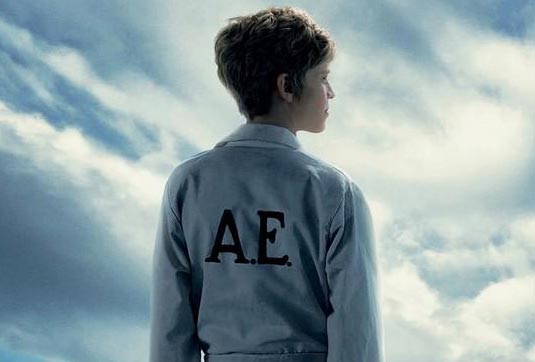
 There's something off about Mira Nair's sumptuously lugubrious tribute to Amelia Earhart, and it's apparent within the first few minutes of what really amounts to a nature film: we aren't going to learn a single new thing about the famous female pilot, notorious for her disappearance over the Pacific during an ill-advised round-the-world flight. Instead, we're in store for a slavish tribute film, all sepia and gold and weighted with studied authenticity and poetic flights of seagulls.
There's something off about Mira Nair's sumptuously lugubrious tribute to Amelia Earhart, and it's apparent within the first few minutes of what really amounts to a nature film: we aren't going to learn a single new thing about the famous female pilot, notorious for her disappearance over the Pacific during an ill-advised round-the-world flight. Instead, we're in store for a slavish tribute film, all sepia and gold and weighted with studied authenticity and poetic flights of seagulls.Sigh. I don't know about you, but if I were in the mood for this sort of fare, I'd take a Xanax and watch the Hallmark channel.
That may sound harsh, but the movie is a disappointment when you think about what could have been learned about Earhart's lifelong quest for celebrity and a woman's right to pilot the wide-open skies. Instead, all obstacles against her seem like mild plot points, meant to pass the time until the next luscious airborne nature shot. In the flight that makes her famous - the "first woman to fly across the Atlantic" - Earhart doesn't actually fly the plane, but simply goes along as a passenger (though she has an opinion or two about how to get off the ground). It's a promising setup: is this woman, who prides herself on her abilities, passing herself off to the world as a fake? But the question never seems to truly bother her (other than to give her motivation to do it again, for real this time)...and we're never given much insight as to why. Similarly, her husband, George Putnam (played by Richard Gere) gets portrayed as a suffering, saintly milquetoast, at first hungry to make Amelia a star but soon plying us with his earnest love for her while she has a perfectly understandable affair with the handsome head of aviation, Gene Vidal (played with ever-smiling insouciance by Ewan McGreagor). Somehow, one can't help but think that real life - let alone the life of the world's most famous female celebrity and feminist heroine - must be more complicated than this, and that emotions are never quite so one dimensional as to be so easily transformed for the convenience of the next adventure.
That isn't to say that Swank doesn't do a great job capturing Earhart's cadence and manner. Swank does, in fact, quite disappear into the role - don't be surprised if she doesn't earn an Academy nod for it this season. But her almost flawless performance, stuck as it is in the middle of this bloodless story, has the characteristics of still water: deep, dark, and practically invisible in the mist.
The movie really misses its best opportunity for drama when it gets to the depiction of the most famous part of Earhart's life: those last few hours as she departed New Guinea in her plane the Electra, headed for a tiny atol in the Pacific for refueling, before she and her navigator, Fred Noonan, disappeared forever. Rumor has it that Noonan was an alcoholic, and that the flight from New Guinea left with poor planning, not enough fuel and other problems. Given the danger of the flight and Earhart's otherwise professional attitude, there has always been much speculation about what happened when that plane left New Guinea and just how it disappeared before reaching its destination in the Pacific. But rather than go to the trouble of unearthing new facts, or even taking the chance of offering us a clearly fabricated but fascinating explanation (as, say, Oliver Stone might), Nair gives us an uneventful catalog of bad coincidences and timing. Nothing in the ultimate fate of the Electra tells us anything more about Earhart's character, her decisions, or even the meaning of her life (other than the standard spiel we get from Eleanor Roosevelt that she's an inspiration to women everywhere). While all this may, in fact, be the simple existential fate of this poor pilot, Nair isn't going for existentialism, either. Instead, the lack of meaning seems like simply an oversight: we're supposed to simply exalt in Earhart's courage at facing down the impossible, not wonder what drove her to it, or caused her to ultimately fail.
Watching this movie, then, is a bit of an exercise in frustration. The cinematography is beautiful, and Swank convinces us that we're really watching Earhart, and really seeing the magic of the skies that she was able to see. At the same time, in the end, the film feels like nothing more than a travelogue of her trips. But just like Earhart - if we're going to circumnavigate the world, we want to do more than simply go along for the ride.




No comments:
Post a Comment
Note: Only a member of this blog may post a comment.